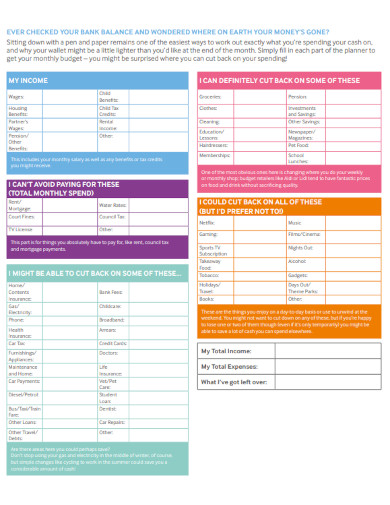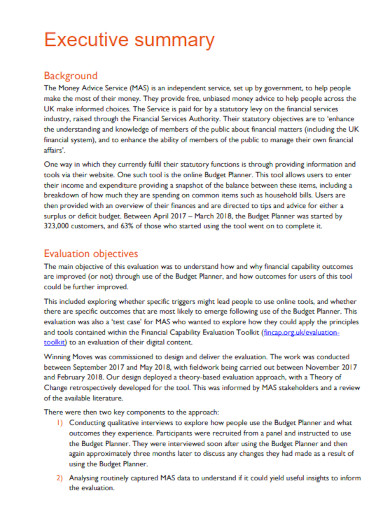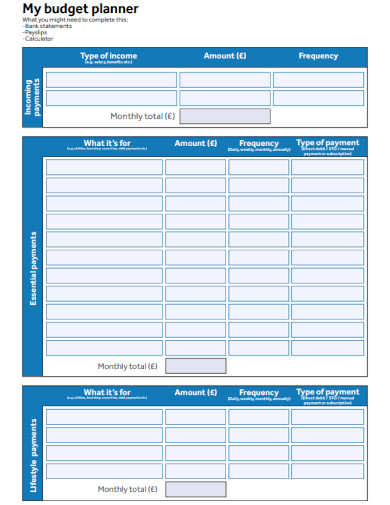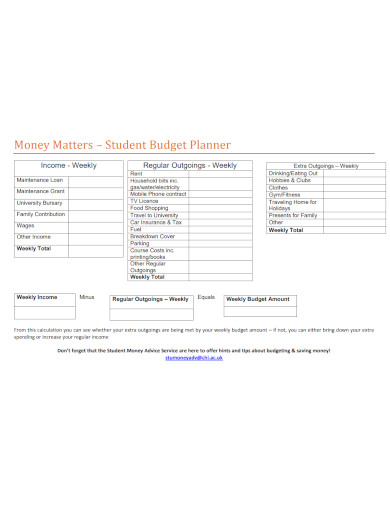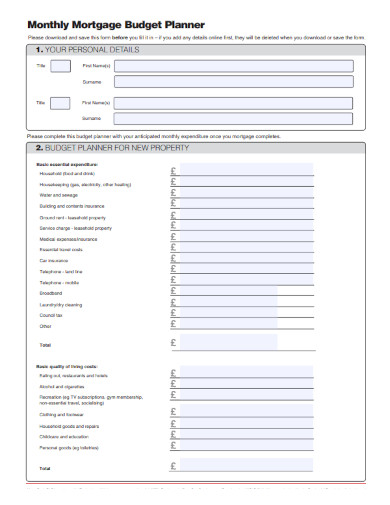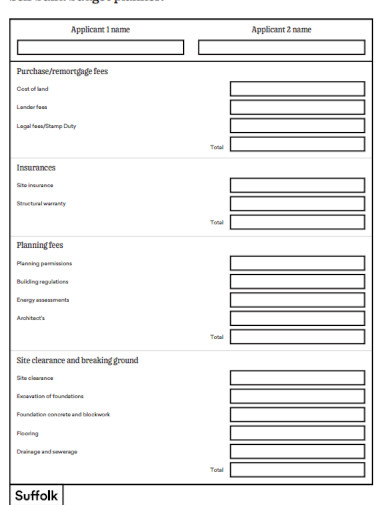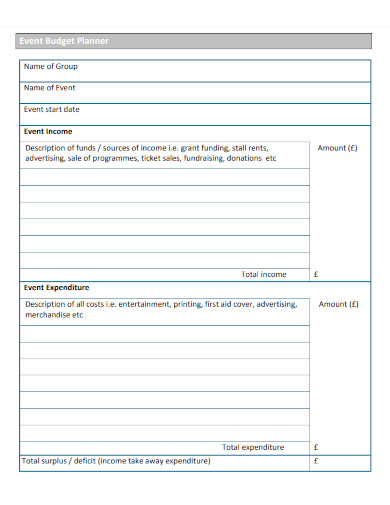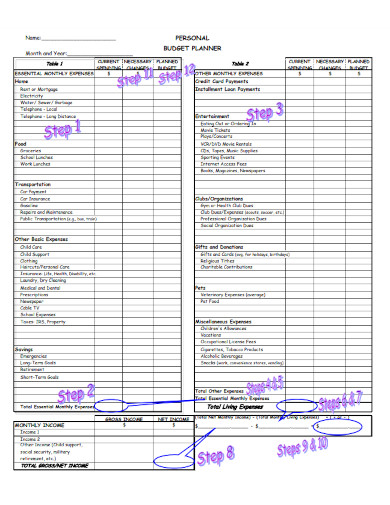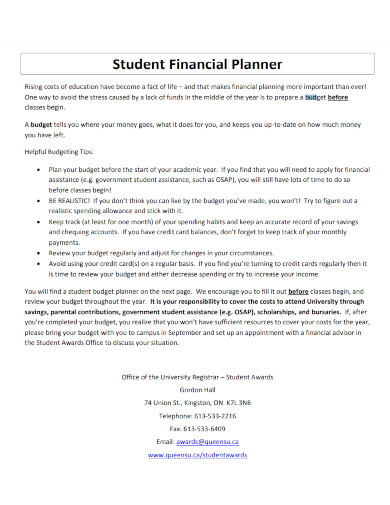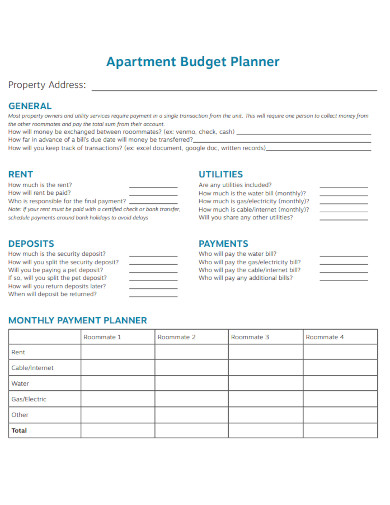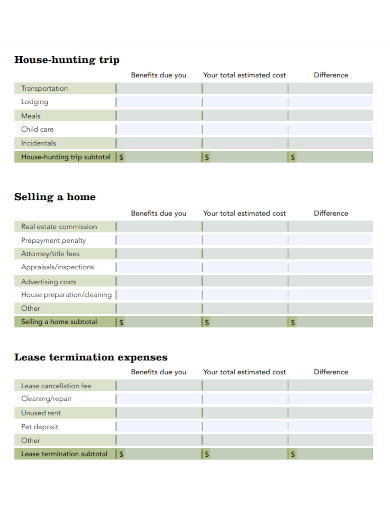The process of making a spending plan is known as budgeting. A budget refers to this plan for spending money. Making this spending plan enables you to estimate your financial projections in advance and decide whether you will have enough money to accomplish your business or personal goals. You can use this planning approach to focus your spending and your funds on the things most essential to you if you do not have sufficient money to do everything you want to. You won’t forget anything vital if you have a list of everything you need to do in one location. By giving the items on your list a priority order, you can quickly determine which ones require your urgent attention, such as the household budget or the operational budget.
10+ Budget Planner Samples
1. Monthly Budget Planner
2. Evaluating the Budget Planner
3. Sample Budget Planning
4. Student Budget Planner
5. Monthly Mortgage Budget Planner
6. Self Build Budget Planner
7. Event Budget Planner
8. Personal Budget Planner
9. Student Financial Budget Planner
10. Apartment Budget Planner
11. Relocation Budget Planner
What Is a Budget Planner?
A budget planner is a strategy for managing your finances and a budget tracker. You can use it to calculate how much money you earn, spend, and save. You may balance your income, savings, and expenses by creating a budget. It directs your spending to assist you in achieving your financial objectives. A planner is crucial if you don’t know where your money is going and don’t save often. Making a budget layout can help you find strategies to lower expenses, create spending caps, pay down debt, and increase your savings.
How To Make a Budget Planner?
A productive budget planner assists you in selecting the most efficient use of your funds while avoiding or minimizing debt. The ideal budget planner is one you can follow, so make necessary adjustments to your strategy. You should adjust your expenditure as essential until you attain your perfect budget. If a monthly budget isn’t working for you, maybe you can try the yearly budget planner to achieve your financial goals. Moreover, we have various budgeting sheet for your expense budget.
1. List Your Earnings, Savings, and Outgoing Costs
Bring your most current account statements, bills, and pay stubs.
Input your income, savings, and outgoing costs for each category in the budget planner. You can always add and name your objects if a particular field isn’t available. Review the sums once you’re finished to be sure you didn’t neglect anything. These things need to reflect how things are right now.
2. Review Your Outcomes
Take a look at the various alerts you get for each category:
Thumbs Up: this sum is within the typical range.
Warning Sign: This amount is slightly above the range of the average.
Stop sign: This sum exceeds the typical range.
You can use these alerts to assist you in deciding where to concentrate your efforts or try to cut expenses. The recommendations can’t apply to everyone because their circumstances are unique, but they offer a decent place to start.
3. Review Your Actions
The tool offers you individualized recommendations in the area titled “Next Steps.” These recommendations are based on the details of your circumstance and your budget. Whether you have money left over or are overspending, they assist you in determining what to do next.
4. Evaluate Your Budget
If your actual spending frequently deviates from your budget, update your calculations to reflect a more accurate picture. Ask yourself the following questions when comparing your budget to your actual expenditure: are there significant variations between your actual spending and your budget, and which areas have the most important differences?
What does having a budget planner accomplish?
Having a budget promotes financial stability. A budget makes it simpler to pay bills on time, accumulate an emergency fund, and save for high costs like a car or home by keeping track of spending and sticking to a plan.
How should I use my financial planner?
Decide on a budgeting strategy, calculate your monthly income, and keep track of your progress.
Must I make use of a budget planner?
An effective strategy to manage your money from month to month is to keep a record of your expenses utilizing a budget planner.
Use your budget plan as a guide to budget for your weekly or monthly expenses when you’ve finished by keeping track of your progress and spending patterns. You will be better able to manage your money as a result, and you will know better what to spend it on. You might even achieve your financial objectives if you’re committed to using your budget planner daily.
Related Posts
FREE 10+ Meeting Planner Samples in PDF
FREE 10+ Course Planner Samples in PDF
FREE 8+ Calendar Planner Samples in PDF
FREE 10+ Cute Workout Planner Samples in PDF | MS Word | Apple Pages
FREE 10+ Financial Planner Samples in PDF | MS Word | Apple Pages
FREE 10+ Digital Planner Samples in PDF | Apple Pages | MS Word
FREE 7+ Year Life Plan Samples in PDF
FREE 6+ 7 Day Weekly Planner Samples in PDF
FREE 50+ Project Planner Samples in PDF | MS Word
FREE 50+ Planner Samples in PDF | MS Word
FREE 10+ Menu Planner Samples in PDF
FREE 10+ Training Planner Samples in PDF
FREE 6+ Bill Planner Samples in PDF
FREE 8+ Birthday Planner Samples in PDF
FREE 10+ Yearly Planner Samples in PDF | MS Word | Apple Pages

